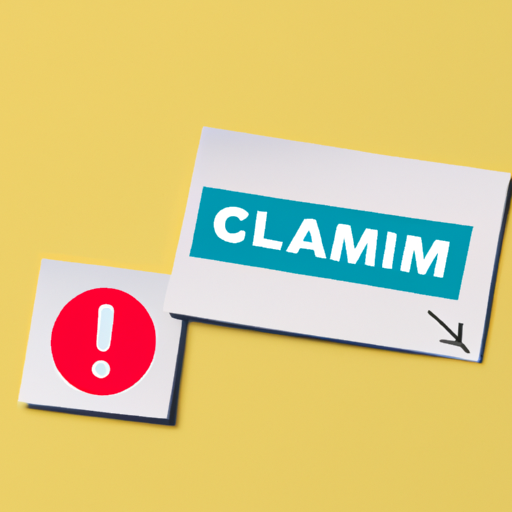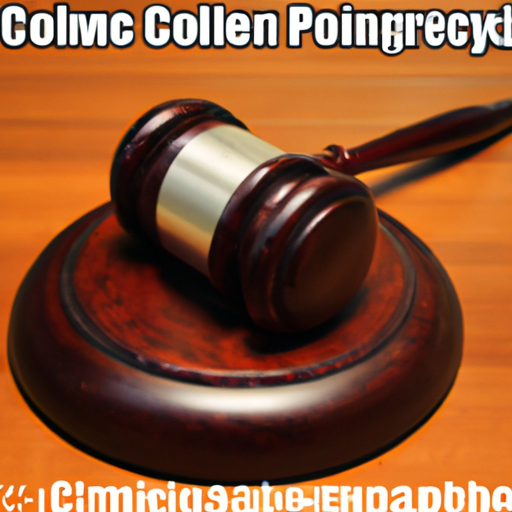In today’s digital age, it’s undeniable that social media has become an integral part of our lives. From connecting with friends and family to promoting businesses and engaging with consumers, social media platforms offer a myriad of possibilities. However, with the increasing influence and power of these platforms, legal issues surrounding social media have also emerged. The rise of social media class action claims has created a complex landscape, prompting businesses and business owners to navigate carefully to protect their interests. In this article, we will explore the intricacies of social media class action claims, shed light on the key factors businesses need to consider, and offer guidance on how to mitigate potential risks. Whether you are facing a claim or seeking proactive measures, understanding the implications of social media class action claims is essential for safeguarding your business.
Overview of Social Media Class Action Claims
Social media class action claims have become increasingly prevalent in recent years as individuals seek justice and protection against various issues arising from their use of social media platforms. This article provides a comprehensive overview of social media class action claims, including their definition, types, importance, and legal basis. It also explores the process of filing a social media class action claim, recent notable cases, challenges and benefits, the statute of limitations, and how to choose the right attorney for such claims.
Understanding Social Media Class Action Lawsuits
Class action lawsuits are legal actions filed on behalf of a group of individuals who have similar claims against a common defendant. In the context of social media, class action claims are filed by users who allege harm or violation of their rights due to the actions or policies of social media platforms. These lawsuits allow individuals to band together and seek justice collectively, making it a powerful tool to hold social media companies accountable for their actions.
Several social media platforms have faced class action claims, including Facebook, Twitter, and Instagram. These platforms, with their extensive user bases and pervasive influence, have been the subject of various allegations such as privacy violations, data breaches, and misleading advertising practices. These claims aim to address a wide array of social media-related issues and protect users’ rights in the digital realm.

Legal Basis for Social Media Class Action Claims
There are several legal bases on which social media class action claims are typically filed. One common basis is the violation of privacy rights. Users may allege that their personal information was improperly collected, shared, or used without their consent, resulting in a breach of their privacy.
Data breach and security issues are also grounds for social media class action claims. When personal information of users is compromised due to a platform’s inadequate security measures, users have the right to seek compensation for the resulting damages, such as identity theft or financial loss.
Furthermore, misleading advertising and false promises made by social media platforms can give rise to class action claims. Users may contend that they were deceived by the platform’s advertising practices, causing them to suffer financial losses or harm.
Process of Filing a Social Media Class Action Claim
Filing a social media class action claim requires careful preparation and the assistance of a reputable attorney experienced in handling such lawsuits. The first step is to find an attorney with expertise in class action litigation and a track record of success in similar cases.
Next, gathering evidence is crucial to build a strong case. This may involve collecting documents, communications, or any other relevant proof of the alleged harm caused by the social media platform. Working closely with the attorney, plaintiffs can compile a comprehensive record of the claims to support their case.
Once the evidence is gathered, and the claim is drafted, the class action lawsuit needs to be certified. Certification establishes the lawsuit as a class action and determines whether it meets the legal requirements to proceed as such. The court will evaluate factors such as numerosity, commonality, typicality, and adequacy of representation in making this determination.
After certification, the parties may engage in settlement negotiations. It is possible for the case to be resolved through a settlement agreement, which may involve monetary compensation or changes in the defendant’s practices. If no settlement is reached, the case will proceed to trial, and a judgment will be rendered.

Recent Social Media Class Action Cases
Several high-profile social media class action cases have drawn significant attention in recent years. One notable case is the Facebook Cambridge Analytica scandal. It involved the alleged unauthorized access and misuse of personal data from millions of Facebook users for political purposes. The lawsuit resulted in a substantial settlement between Facebook and the plaintiffs.
Another case involves Twitter’s data privacy breach, where the platform faced claims of failing to adequately protect users’ personal information. This breach exposed users to potential identity theft and other security risks.
Furthermore, Instagram has been involved in a dispute regarding user content ownership. Users filed a class action claim alleging that the platform improperly used their photos for commercial purposes without their consent, potentially infringing on their intellectual property rights.
Challenges and Benefits of Social Media Class Action Claims
Proving damages in social media class action claims can be challenging, as it may require demonstrating the extent of harm suffered by individual class members. Additionally, large corporations have the resources to mount a vigorous defense, making it crucial for plaintiffs to have experienced attorneys who can navigate complex legal challenges.
Nevertheless, pursuing social media class action claims can yield significant benefits. By combining their claims into a single lawsuit, individuals can leverage their collective strength to hold social media platforms accountable for their actions. Successful lawsuits can not only provide financial recovery for victims but also lead to changes in practices and policies to protect the rights and privacy of social media users.
Statute of Limitations for Social Media Class Action Claims
It is essential to be aware of the statute of limitations for filing social media class action claims. The time limitations may vary depending on the jurisdiction and specific circumstances of each case. Generally, individuals must file their claims within a specified period from the date of discovering the harm or when they should reasonably have discovered it.
There may be tolling provisions and exceptions to the statute of limitations that can extend the filing deadline. For example, if the harm was initially concealed or the plaintiff was a minor at the time of the incident, the statute of limitations may be paused or extended.
How to Choose the Right Attorney for Social Media Class Action Claims
Selecting the right attorney is crucial in successfully pursuing social media class action claims. It is essential to find an attorney who has experience handling class action lawsuits and a substantial track record of success in similar cases. An attorney with a deep understanding of the complexities of social media platforms and the relevant laws can navigate the legal landscape effectively.
Moreover, a well-resourced and supportive legal team can make a significant difference in complex cases. Attorneys with access to expert witnesses, investigative resources, and financial backing can provide the necessary support and expertise throughout the litigation process.

FAQs About Social Media Class Action Claims
What is a social media class action claim?
A social media class action claim is a legal action filed on behalf of a group of individuals who have similar claims against a social media platform. It allows individuals to collectively seek compensation or other remedies for harm or violations of their rights caused by the platform’s actions or policies.
What are the common grounds for filing such lawsuits?
Common grounds for filing social media class action lawsuits include privacy violations, data breaches, misleading advertising, false promises, and intellectual property infringement. These claims aim to protect users’ rights and seek compensation for damages suffered.
How can one join a social media class action lawsuit?
To join a social media class action lawsuit, individuals usually need to meet certain criteria defined by the lawsuit’s class definition. They can typically join by opting in or opting out of the lawsuit, depending on the jurisdiction and the court’s orders.
What compensation can be obtained through these claims?
Compensation in social media class action claims can vary depending on the specific circumstances of each case. In successful lawsuits, plaintiffs may be entitled to monetary damages, reimbursement for expenses, injunctive relief, changes in the defendant’s practices, or a combination thereof.
Is it necessary to hire an attorney for a social media class action claim?
While it is not legally required to hire an attorney for a social media class action claim, the complexities of these cases make professional legal representation essential. A skilled attorney experienced in class action litigation can navigate the legal landscape, gather evidence, build a strong case, and advocate for the plaintiffs’ rights effectively.
Conclusion
Social media class action claims have become a means for individuals to collectively seek justice and hold social media platforms accountable for their actions. These lawsuits address a range of issues, including privacy violations, data breaches, misleading advertising, and intellectual property disputes. While challenges exist in proving damages and facing well-resourced corporations, social media class action claims can provide significant benefits to victims and promote positive changes in platform practices. By understanding the legal basis for these claims, the process of filing, recent notable cases, and the importance of choosing the right attorney, individuals can navigate the complexities and pursue justice in the digital realm.

































